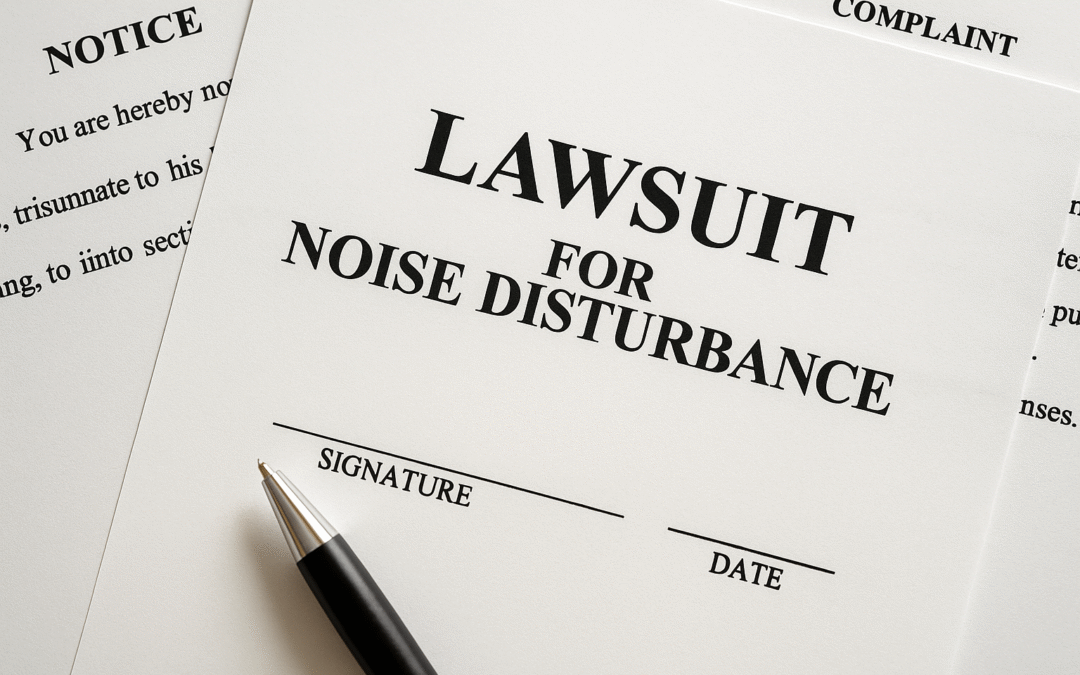What Is a Noise Complaint?
A noise complaint is a legal issue involving sound that unreasonably interferes with a person’s health, comfort, or property.
Delaware defines a noise disturbance as sound that endangers health or safety, disturbs a reasonable person, or harms property value or the environment.
How Does a Noise Complaint Work in Delaware?
-
Check Local Ordinances: Most towns and cities in Delaware have specific noise rules, such as decibel limits and quiet hours (often between 10 p.m. and 7 a.m.).
-
Document the Problem: Gather evidence like recordings, photos, police reports, or witness statements showing repeated or excessive noise.
-
File a Complaint or Sue: You can report the issue to local authorities or file a small claims lawsuit if informal methods fail.
Example: If your neighbor blasts music over 70 decibels after midnight multiple times per week and you have recordings and police reports, you may have grounds for a lawsuit.
Takeaway: You can sue for noise in Delaware—but only with solid proof and after trying other remedies.
Benefits of Suing for Noise in Delaware
-
Enforce your right to quiet enjoyment of your home
-
Possibly receive monetary compensation for stress or loss of use
-
Request a court order to stop the noise
-
Hold repeat offenders accountable
-
Use your case to push for better enforcement of local noise laws
Common Questions About Noise Laws in Delaware
Q: Is there a statewide noise law in Delaware?
A: No. Most noise rules are set at the local or county level.
Q: What kind of evidence do I need to sue?
A: Recordings, police reports, written complaints, text messages, and witness statements help support your case.
Q: Can I sue if the police won’t help?
A: Yes. If the noise continues and affects your quality of life, small claims court is an option—even without police citations.
Practical Examples
In 2024, a resident near Magnolia filed repeated noise complaints due to late-night engine revving and loud music. After gathering three police reports and submitting audio evidence, the resident filed a claim in small claims court. The court awarded a $500 judgment and issued an order requiring the neighbor to follow local quiet hours.
Final Thoughts
Noise complaints are more than a nuisance—they can be a legal issue. If talking to your neighbor doesn’t work, the law gives you options to restore your peace.

